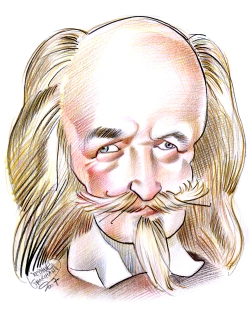HOBBES' POLITICAL PHILOSOPHY
Publié le 09/01/2010

Extrait du document

Hobbes' determinism allows him to extend the search for causal laws beyond natural philosophy (which seeks for the causes of the phenomena of natural bodies) into civil philosophy (which seeks for the causes of the phenomena of political bodies). It is this which is the subject matter of Leviathan, which is not only a masterpiece of political philosophy but also one of the greatest works of English prose. The book sets out to describe the interplay of forces which cause the institution of the State or, in his term, the Commonwealth. It starts by describing what it is like for men to live outside a commonwealth, in a state of nature. Since men are roughly equal in their natural abilities, and are equally self-interested, there will be constant quarrelsome and unregulated competition for goods, power, and glory. This can be described as a natural state of war. In such conditions, Hobbes says, there will be no industry, agriculture, or commerce: no knowledge of the face of the earth; no account of time; no arts; no letters; no society; and, which is worst of all, continual fear and danger of violent death; and the life of man, solitary, poor, nasty, brutish and short.
Liens utiles
- Encyclopedia of Philosophy: OCKHAM'S POLITICAL THEORY
- L'oisiveté est la mère de la philosophie (Hobbes)
- Quelle conception de la nature humaine vous semble la plus crédible? La guerre de chacun contre chacun de Hobbes ou la bonté naturelle de Rousseau? L’état de nature est hobbésien ou rousseauiste?
- Hobbes, article 14: L'état de nature dans Léviathan et Le Citoyen
- Léviathan, Chapitre 13, Hobbes, 1651































